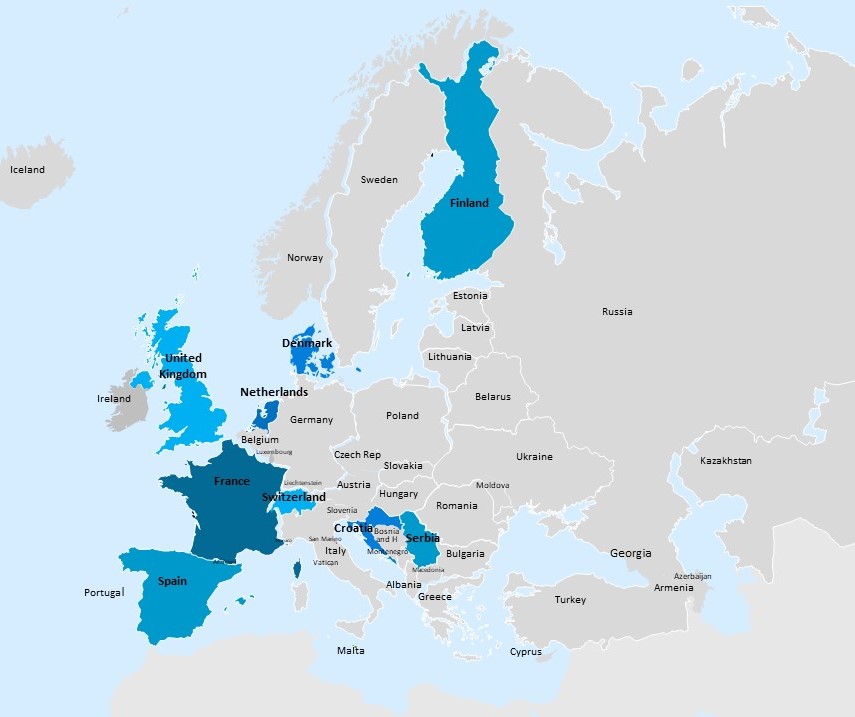About INVENT
European Inventory of Societal Values of Culture as Basis for Inclusive Cultural Policies
INVENT is a research project funded under the H2020 Programme of the EU. The INVENT project sets out to identify, through research, the cultural and social preconditions required for the strategic goals of the New EU Agenda for Culture to be realized.
New EU Agenda for Culture requires social turn in cultural policies
The New EU Agenda for Culture represents an exceptionally significant step forward in European cultural policy. However, the EU’s new focus on the sphere of culture is accompanied by theoretical and methodological challenges. The changes which Europe and the world have undergone over the last thirty years are so drastic that they require a different approach to creating cultural policy.
The INVENT consortium aims to contribute to a “social turn” in cultural policies, that takes into account how the way of life and cultural participation of European citizens has been influenced by the mega-trends of globalization, European integration and the migrations that accompany them, the digital revolution, and rising social inequalities. The bottom-up approach of the project will provide insight into multiple, often mutually contradictory, concepts of culture and understandings of societal values of culture among various social (demographic, socio-economic, ethnic, religious…) groups in European societies. At the same time it will offer the foundation for new methodologies for capturing the societal value of culture. This is the overall goal of the project, aimed at supporting the values of culture vital for the preservation and improvement of the European project, by means of striving to promote identity and belonging, inclusiveness, tolerance, and social cohesion.
Work packages
The INVENT project has nine work packages.
WP1: Coordination, monitoring and evaluation
WP2: Analysing literature and collecting empirical data
Analyzing relevant literature and secondary data on cultural diversity, globalization, EU integration, migration, digitalization, and social inequalities.
Collecting empirical data needed for the INVENT project using surveys, a smart phone study with empirical stimuli (“experience sampling”), data scraping of online content, focus groups, interviews, and case studies.
WP3: Mapping diversity
Exploring the empirical data collected in WP2 on multiple concepts and societal values of culture among various social groups (demographic, socio-economic, ethnic, religious, and so on) and across European countries as the first step in creating inclusive cultural policies at the EU and national levels.
WP4: Globalizing (European) cultures
Studying the influence of European integration and the migrations that accompany these processes on culture in everyday life in European societies.
WP5: Culture is digital/boundless
Studying changes in the lifestyle of citizens of European societies influenced by digitalization.
WP6: Unequal cultural opportunities
Studying changes in the way of life of different socio-economic groups influenced by growing social inequalities and the effects of these changes on inclusiveness, tolerance and social cohesion.
WP7: Decoding culture: creating inclusive cultural policies
Comparing existing models and instruments of cultural policy using existing databases (e.g. Compendium of Cultural Policies and Trends in Europe) and studies on national and European cultural policies.
Creating a dynamic and interactive European inventory of societal values of culture designed to serve as resource in the creation of cultural policies in Europe.
Analysing existing sets of cultural indicators aiming to identify those most suitable for the evaluation of the societal value of culture.
WP8: Dissemination and communication of the project results
WP9: Ethics, Privacy and Data Management
Comparative Analysis
The nine countries where the INVENT research will be carried out – Croatia, Denmark, Finland, France, the Netherlands, Serbia, Spain, Switzerland, and the United Kingdom – represent different models of cultural policy and different media systems. This offers excellent opportunities for a comparative analysis of the prevalence of multiple notions of culture in each country as well as how citizens perceive the influence of social mega-trends (globalization, European integration, migrations, and growing social inequalities) on both everyday culture and culture in a more narrow sense.


 This project has received funding from the European Union’s Horizon 2020 research and innovation programme under grant agreement No
This project has received funding from the European Union’s Horizon 2020 research and innovation programme under grant agreement No